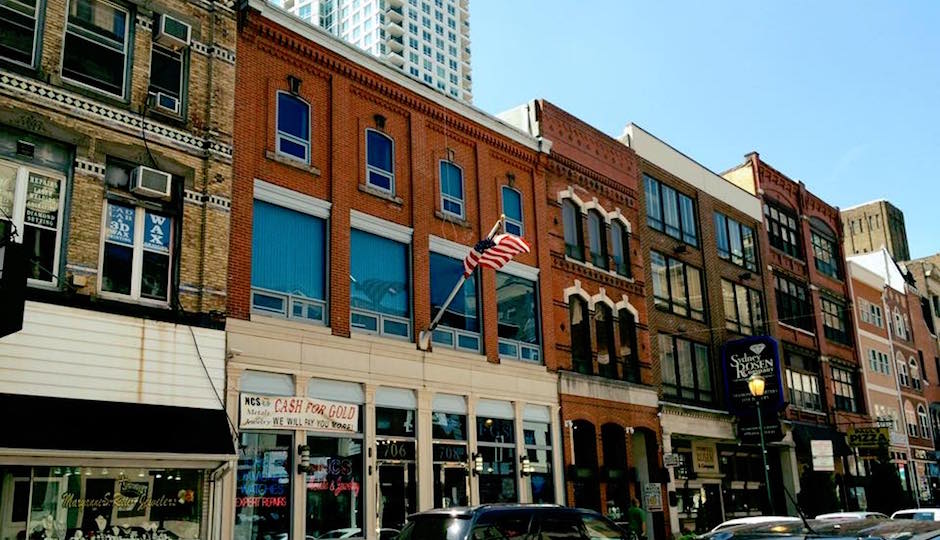Council Members Push to Protect More of Philly’s Historic Architecture

The three buildings at left in this photo are the ones Toll Brothers has acquired in connection with its plan to build a mixed-use residential-retail structure in the heart of Jewelers’ Row. | Photo: Oscar Beisert
A bill introduced in City Council on Thursday morning could end up nearly doubling the budget of the Philadelphia Historical Commission, a small department charged with protecting the city’s historic architecture that preservationists say has barely enough resources to do its most basic jobs.
The bill, introduced by Councilwoman Blondell Reynolds Brown and co-sponsored by Mark Squilla and Al Taubenberger, and supported by the Kenney administration, would enact fees for permits that need to be reviewed by the Historical Commission. Commission staff currently must sign off on building, alteration, and demolition permits that affect historic properties and districts. That work takes up the vast majority of staff time, leaving little time left over to identify and designate historic properties, as the commission’s director, Jon Farnham, has acknowledged.
“In Philadelphia, the nation’s first World Heritage City, I believe that this fee will help to bolster the Historic Commission staff, enable the Commission to better review applications for historic dedication, and help preserve the historic fabric of our City,” Councilman Squilla said in a press release.
Understaffing the Historical Commission is how Philly ends up with situations like the one on Jewelers’ Row, in Squilla’s district, where the development group Toll Brothers is planning to demolish a set of buildings that many Philadelphians were shocked to learn had no historic protections. Mayor Jim Kenney has recognized the commission’s funding as a problem in the past. When he was a councilman, he introduced a bill that would have transferred $500,000 from the general fund to the Historical Commission to fund a survey of properties that could be eligible for the local register of historic places. Kenney resigned to run for mayor before that bill advanced. The Historical Commission’s budget last year was just under $425,000, and it currently gets by with a staff of six. The sponsors of the new bill estimate it could generate as much as $350,000 a year. Reynolds Brown called it a “win-win” for the city.
Paul Steinke, director of the Preservation Alliance, said that he and his staff had a chance to review the new bill and offer some feedback on it, and that they generally applaud the effort to bolster the Historical Commission. But the initiative Kenney sponsored as a councilman was simpler than, and therefore preferable to, the one that was introduced Thursday, Steinke said.
“I think our feeling on it is that if it succeeds in raising money for the chronically underfunded Historical Commission, that’s a good thing,” he said.
“In an ideal world it wouldn’t take user fees to do that, but we don’t live in an ideal world,” he added.
The fees described in the legislation would be calculated as a portion of the amount paid for a building, alteration, or demolition permit. Interior alterations that cost less than $10,000 to complete wouldn’t require Historical Commission review fees. The money raised would go into the general fund. The bill would also require the finance director to prepare a yearly report detailing the total amount of fees collected by the Historical Commission, with the intention of allocating that amount back to the commission from the general fund.
Steinke noted that the Historical Commission hasn’t moved on three historic district nominations — for Overbrook Farms, Washington Square West, and Spruce Hill — in the last several years. Recently, a handful of old buildings on the 4000 block of Chestnut Street have been torn down for development of student housing. Steinke noted that those buildings were already subdivided into apartment units and fully occupied, but because they were unprotected, developers were able to demolish them.
“That’s the kind of pressure that threatens to consume more and more buildings, especially in that neighborhood,” he said.
Follow @jaredbrey on Twitter.


